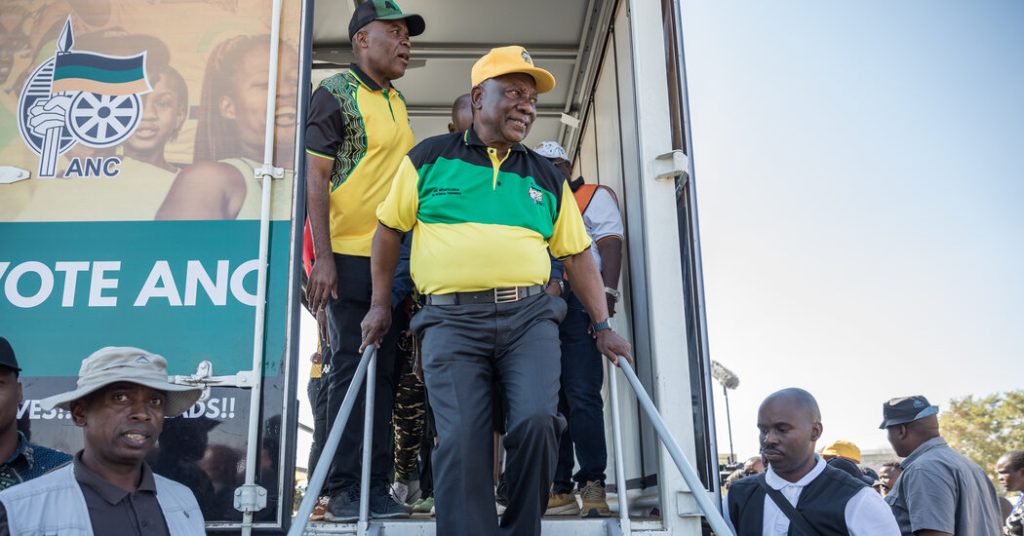The African National Congress, South Africa’s ruling party, lost its political monopoly in the country’s recent election, receiving only about 40 percent of the votes. This marked a significant decrease from their previous result of nearly 58 percent. The party now faces the challenge of forming a coalition government with rival parties. President Cyril Ramaphosa, who leads the A.N.C., must navigate this process amidst internal party factions and criticisms of his leadership.
The decline in the A.N.C.’s support can partly be attributed to former president Jacob Zuma, a divisive figure who launched a new party that garnered almost 15 percent of the vote. Zuma has disputed the election results, claiming his party received a majority. This, along with other small parties alleging irregularities, has raised concerns about possible political challenges for the A.N.C. going forward.
With no absolute majority, the A.N.C. must now seek alliances with other parties to form a government. Potential coalition partners include the Democratic Alliance and the Economic Freedom Fighters, both of which offer ideological differences that could impact the A.N.C.’s base of support. The upcoming coalition negotiations are crucial for the A.N.C.’s future direction and may determine whether President Ramaphosa secures a second term.
The prospect of a coalition government in South Africa raises concerns about political stability and effectiveness, given the history of instability in local coalition governments. Issues such as nationalization of industries and land redistribution could be contentious points between potential partners, risking the A.N.C.’s relationships with big business and international investors.
The decline in the A.N.C.’s popularity reflects growing dissatisfaction among various sectors of South African society with the party’s performance in governing. Younger voters, in particular, have been less loyal to the A.N.C. due to continued economic hardships and allegations of corruption among party leaders. The election results mark a historic shift in South Africa’s political landscape, raising questions about the party’s future and the country’s direction.
The election results signal a significant change in South Africa’s political scene and could have implications for other liberation movements in the region. The decline in electoral support for the A.N.C. mirrors similar trends in neighboring countries governed by former liberation movements. The outcome of the election may serve as a warning for other African countries facing similar challenges with their ruling parties.


